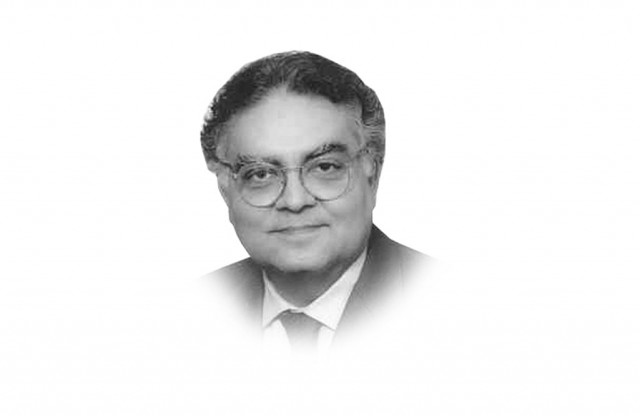Constitution and the state
The very organisation that attempts to get extraconstitutional power, actually gets weakened.

General Kayani emphasised the importance of public support for the armed forces of Pakistan. It may be helpful, therefore, to examine the conditions under which citizens give their support to a particular organisation of the state, such as the military. It can be postulated that public support for the military hinges on the citizens considering its organisational behaviour to be legitimate. The source of legitimacy is the will of the people as embodied in the Constitution of a country. So, public support for the military or any other organisation of the state is forthcoming if, and only if, it functions within the scope of, and in a manner specified by, the Constitution. So the military will lose public support if it overthrows an elected civilian government or intervenes in the process of elections or covertly attempts to destabilise an elected government.
Anyone who has been in contact with Pakistan’s military officers (as I have, teaching them during annual lectures at the Command and Staff College and the National Defence University for many years) would testify to their character qualities. By and large, they exude discipline, a quiet confidence, a humility drawn from an inner strength and a sense of honour. They would unhesitatingly give their lives in defence of their homeland. Most citizens of Pakistan would be moved by such sterling qualities. Why is it then that the army chief feels a need to seek public support for the military? Perhaps, this is because as an organisation, the military has frequently gone beyond the institutional limits envisaged in the Constitution. From being an armed force exclusively assigned by law to defend Pakistan’s territory, it has enlarged its role to become a major player in the politics and economy of the country.
The identity of any state organisation is articulated by the institutional structure within which it is located. Pakistan’s Constitution is the foundation on which the entire institutional structure and the associated organisational edifice of the state rest. The central feature of the Constitution is that it stipulates a balance between the various pillars of the state: parliament, the judiciary and the executive with the free media being the fourth pillar. The military, within this configuration, is simply a subordinate arm of civil authority. The purpose of this separation of powers and the balance, thereof, is to establish the necessary checks to arbitrary power. In this way, the freedom and the fundamental rights of the people can be ensured.
If a particular organisation of the state goes out of balance relative to other organisations within the state structure, two consequences ensue: first, the entire state structure is destabilised and hence, state authority jeopardised. Second, if a particular state organisation arrogates to itself disproportionate power, both its identity and balance with other state organs, are eroded. Thus, the very organisation that attempts to get extraconstitutional power, actually gets weakened. As its identity and balance vis-à-vis other state organisations is undermined, so too is its strength. Thus, the strength of any state organisation as much as its public support is drawn from the Constitution.
Published in The Express Tribune, November 12th, 2012.

















COMMENTS
Comments are moderated and generally will be posted if they are on-topic and not abusive.
For more information, please see our Comments FAQ